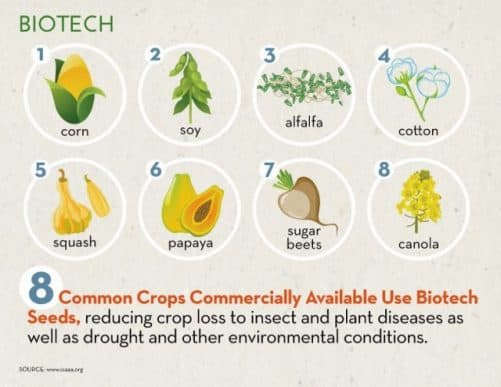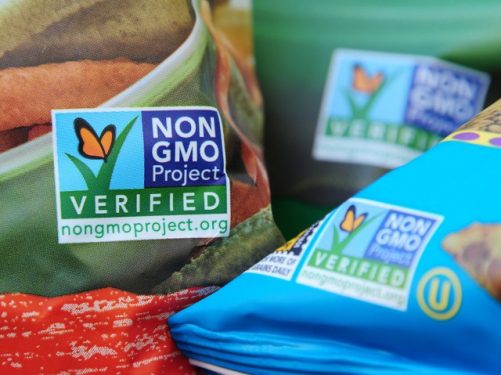GMO Foods: The PROS and CONS
Do you know just how many foods contain GMOs, or ingredients from genetically engineered plants? More than you think — including some types of salmon! Here are some common foods that contain GMOs, along with a look at the pros and cons of GMO foods.
What Are GMO Foods?
GMO stands for genetically modified organism. Foods have been genetically modified for thousands of years – it’s called selective breeding. Farmers have long selected seeds, or animals with more desirable traits, and crossbred them. Today, however, the genes of many plants are modified in a lab.
The Federal Government's new term for GMOs is Bioengineered (BE). BE seeds can produce plants that are more drought-tolerant, weed resistant, and require fewer pesticides. That has definite benefits for our health and the food supply.
Previously, there was no way to tell if a food was genetically modified because it wasn't required to be labeled as such. But as of January 2022, the USDA now requires BE foods or foods made with detectable levels of GMOs to carry this label:
The thing is, because of some of the technology used to genetically modify seeds, some modified foods contain GMOs (or BEs) but they're not detectable. So they don't have to carry the label.
Which Foods Contain GMOs/BEs?
Right now, the list of foods with detectable modified genetic material includes:
- Alfalfa
- ArcticTM Apples
- Canola
- Corn
- Cotton
- bt Eggplant
- Ringspot virus-resistant papaya
- Pink pineapple
- Potato
- AquaAdvantage® Salmon
- Soybean
- Summer squash
- Sugarbeet
Some of these crops are grown for their oils, like soybean and corn. These oils aren't required to carry a BE label because the amount of genetically modified material isn't detectable by the time it's processed.
The same loophole applies to foods with multiple ingredients. If the modified ingredient is not the primary ingredient, the package doesn't have to be labeled.
The Pros and Cons of GMOs
Genetically modified foods get a bad rap, but they are not always bad. Many are completely safe to eat and provide similar nutrition content to non-GMO foods. Some even taste better or are longer lasting.
Some of the benefits of growing modified crops include:
- Farmers have a better yield, with less land and water, which increases the food supply and their bottom line.
- Plants are disease and pest-resistant, which allows for less use of pesticides and fungicides.
- Some plants are better tasting or more nutritious.
- Some, like ArcticTM Apples stay fresher longer, and resist browning when cut. That means less food waste.
But there's always a downside too.
- There's concern about plants that are modified to resist herbicide chemicals like glyphosate, because this herbicide might pose health problems. It's sprayed on many crops, especially soybeans.
- Sometimes, changing a plant's genes can have negative effects on the environment.

The hard part about avoiding GMOs is that they are virtually everywhere. Even if you don't eat these particular foods, the most common foods that you buy at the grocery store are made from ingredients that come from these crops. They’re in the formula we feed our babies, the French fries and snack foods we eat, the ketchup we pour on our burgers, and the feed that the chickens, farmed fish, and beef we buy, eats.
I'm not convinced that we need to avoid GMO products (although I'm a little weirded out by that GMO salmon), but I do think consumers deserve to have a choice.
For the safest, non-controversial food, try to buy local produce so you know the source. GMO crops are grown by large-scale commercial farms. And if you really want to avoid GMOs, look for those that carry the non-GMO Project label. They're a third-party verification system that many larger companies will pay to verify their non-GMO status.

Do you have an opinion about GMOs? Do you think we should be manipulating our food supply, or are we just asking for trouble?
Eat well!


You won't no the long-term consequences of GMO foods. I think that is the scary part. We MIGHT find out that it is unhealthy 50-100 years later.
I agree that we should be able to chose what we eat. That's legitimate consumer rights.
Yes, that is a big concern about GMO/GE foods - there is so much that we don't know, both in terms of human health and environmental impact. Thanks for visiting and chiming in on the subject 🙂